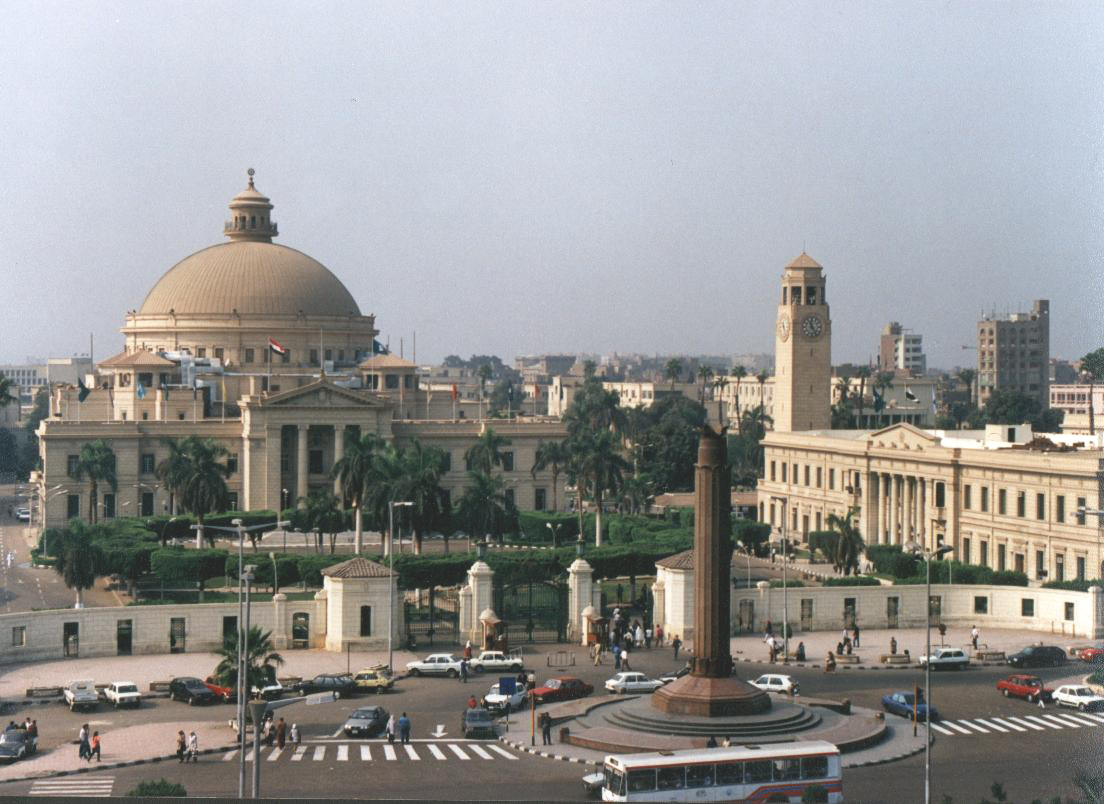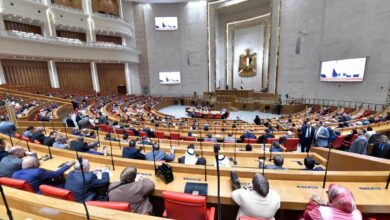Since its establishment nearly 100 years ago, the American University in Cairo has developed an enviable array of programs. But the recent political upheavals across Egypt have inspired lecturers to add a new, rather more highly-charged subject to the choices currently on offer.
Students will be able to sign up for revolution studies–two modules which lecturers have put together at lightning speed in response to the toppling of President Hosni Mubarak.
The courses, which are fully accredited and available to both undergraduate and graduate students, will look at historical comparisons between events of the past three weeks and previous revolutions from across the globe.
One of the modules, Fall of the Regime, even takes its name from one of the signature chants used by demonstrators during the build-up to Mubarak’s resignation.
The man who came up with the name, Michael Reimer, associate professor of history at AUC, said he thought it was a suitable moniker in light of events since 25 January, when pro-democracy protests kicked off in Egypt.
“I heard it so often that I thought it would make an appropriate title,” he added.
According to Reimer, the course, which is subtitled Egypt’s 25 January Uprising in Comparative Historical Perspective, will look at how Egypt’s experiences compare to other insurrections like the Palestinian intifadas and the uprisings against Communism in Eastern Europe.
Historians are typically reluctant to comment on recent events and as things unfold there are unexpected possibilities, he said.
“Just two months ago who would have predicted this?," he asked. "But I’m hoping not so much that we have a tremendous amount to contribute specifically to understanding these events by themselves, but that by comparing them we may be able to raise questions that need answered.”
The new modules were devised after university chiefs asked faculty staff to submit proposals for possible programs incorporating the events of recent days.
Around 40 were received in total, including one looking at the chants and poetry of protesters and how the revolution “translated into language”.
A meeting of AUC chiefs at the Provost Council last week whittled the final number down to two.
The second is a module spearheaded by Associate Provost John Swanson focusing on the uprising’s relevance to the history of Cairo.
Reimer, who emphasized that some elements of the modules might still be changed, agreed that the programs were put together unusually quickly.
But he added that because they were all being “team taught” by an especially high number of lecturers he was confident the syllabus would not be weakened.
For some, it is too early to turn the revolution’s experience into a post-revolution knowledge economy. In her recent commentary in Al-Masry Al-Youm, independent curator Angela Harutyunyan criticized the university’s plan to embark on various revolution-related activities when it “remained conspicuously silent throughout the revolt, often seeming to care more about the safety of its students and faculty,” she wrote.
Besides offering courses, AUC has also been eying a documentation role.
Bruce Ferguson, dean of the School of Humanities and Social Sciences, said AUC wants to compile an archive of photos, sound and video recordings to document the landmark events, and that there was a team of 150 volunteers working on the project. It would be up and running in a matter of weeks, he added.
“We had security guards down near the square on our downtown campus, or staff members forming self-policing groups at night," he said. "Any individual or institution had their own particular experience, and we want to record the university’s perspective on it.”
The third element of the 25 January initiatives involves re-molding existing programs to incorporate aspects of the uprising.
According to Ferguson, there are about 15 courses, including some in the English and Middle Eastern departments, which are due to be altered.




